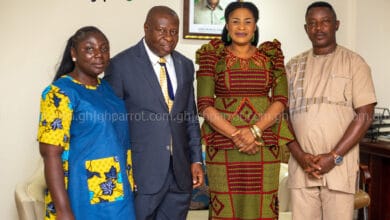Wisdom Bani: The Case for Inclusive Leadership in Ghana

In every thriving democracy, politics is a tool meant to unify diverse voices, address societal needs, and drive development. However, in many parts of the world, including Ghana, political decisions and elections are still often influenced by cultural and ethnic identities rather than the values of inclusiveness, competence, and vision.
As the Tema Metropolis looks toward the future, it is critical to recognize the urgent need for unity, diverse representation, and progressive leadership in public office. One leader who embodies these ideals is Hon. EBI Bright, whose candidacy for Mayor presents a compelling case for inclusive and visionary governance.
Broke at 68: A Wakeup Call for Ghana – Selorm Kofi Dake
Politics Beyond Culture and Ethnicity
Ethnicity and culture are intrinsic aspects of our identities; they shape our worldview and connect us to our heritage. However, using them as a primary filter in political decision-making can lead to division, marginalization, and stagnation. When leaders are chosen based solely on tribal, ethnic, or cultural affiliations, the broader needs of the population are often sidelined in favor of narrow interests.
Ghana is a multicultural nation with more than 100 ethnic groups, each contributing to the richness of its social fabric. To prioritize one over others in political leadership is not only unfair but counterproductive. Inclusiveness in leadership ensures that governance reflects the interests of the entire population, especially in urban centers like Tema, which are home to diverse communities.
The Power of Unity in Politics: Public Health as a Case Study
Unity in political leadership fosters collaboration, shared responsibility, and coordinated responses to social challenges. One of the clearest examples of this is in the field of public health. When leaders rise above ethnic lines and embrace a unified approach to governance, health policies become more holistic and equitable.
In a united political system
Resources are allocated based on need, not political favor.
Health initiatives reach every community—not just loyal constituencies.
Public trust is strengthened, increasing participation in health programs.
Marginalized groups receive the attention and services they deserve.
Unified leadership enables data-driven decision-making, coordinated infrastructure, and targeted community engagement—creating healthier, more resilient cities.
Hon. EBI Bright: A Leader for All
Hon. EBI Bright stands out as a strong advocate for inclusive governance. Her vision for Tema Metropolitan Assembly is rooted in unity, transparency, and service. Her leadership transcends ethnic boundaries and focuses instead on delivering tangible results for every resident of Tema—regardless of background.
What makes Hon. Bright the best choice for Mayor is not just her track record of public service and communication expertise but also her deep commitment to improving healthcare in the region. She has consistently prioritized:
Access to quality primary healthcare: advocating for well-equipped health centers in all zones of the metropolis.
Community health education: promoting awareness on maternal health, hygiene, and preventive care.
Support for health workers: ensuring better training, welfare, and motivation for frontline health personnel.
Partnerships with NGOs and international health bodies: to boost resources and expertise for local healthcare delivery.
Hon. Bright’s inclusive approach ensures that healthcare reforms and initiatives benefit every demographic—urban poor, the elderly, young mothers, and even informal sector workers who are often left out of traditional health planning.
Conclusion
As Tema faces the challenges of urbanization, public health, and economic inequality, the path forward must be guided by inclusive and visionary leadership. Electing leaders based on shared values and vision—not cultural or ethnic loyalties—is the only way to ensure sustainable development.
Hon. EBI Bright is a shining example of what Tema, and indeed Ghana, needs in this era—a unifier, a servant-leader, and a healthcare champion. Her election as Mayor would be a bold step toward a healthier, more united, and forward-thinking metropolis.
By Wisdom Bani, Health Professional & Quality Assurance Manager





